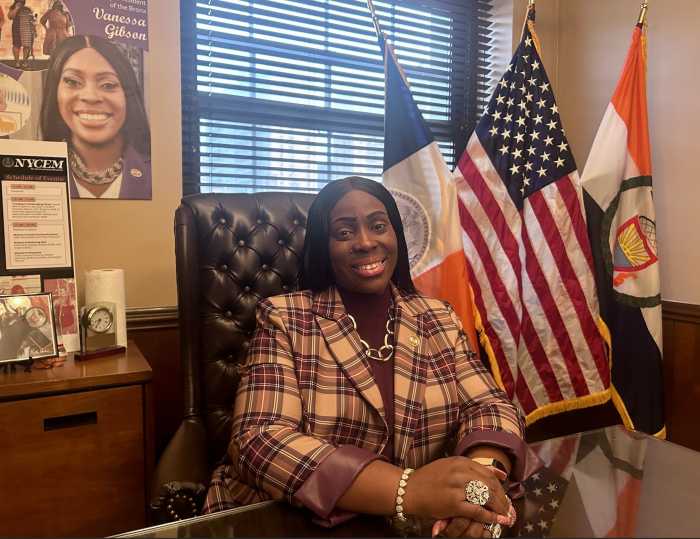In a scathing June 10 opinion, a New Jersey judge ordered the immediate dissolution of a so-called conversion therapy organization that he found was an “alter ego” of a group convicted in his courtroom four years ago for violating the state’s Consumer Fraud Act.
Judge Peter F. Bariso, Jr., in Hudson County Superior Court, found that the Jewish Institute for Global Awareness (JIFGA) had picked up where Jews Offering New Alternatives to Homosexuality (JONAH) — shut down in a settlement agreement following the 2015 jury verdict under the Consumer Fraud Act — left off. That settlement agreement permanently barred Arthur Goldberg, Elaine Berk, and others running JONAH from engaging in therapy aimed at changing the sexual orientation of gay and lesbian people or transgender people’s gender identity.
The 2015 jury verdict followed a lengthy trial in which JONAH clients testified about the absurd and extreme treatments to which they were exposed. Many of the clients were young people pushed into JONAH’s hands by religiously observant parents in a desperate attempt to “turn them straight.” The jury verdict concluded that JONAH was engaged in consumer fraud, misrepresenting its ability to change a person’s sexual orientation.
After that verdict, Bariso approved a settlement between JONAH’s operators and the plaintiffs, under which JONAH would go out of business and pay substantial damages to the defrauded plaintiffs. Goldberg, Berk, and the other defendants were “permanently enjoined from engaging, whether directly or through referrals, in any therapy, counseling, treatment, or activity that has the goal of changing, affecting or influencing sexual orientation, ‘same sex attraction,’ or ‘gender wholeness,’ or any other equivalent term, whether referred to as “conversion therapy,” “reparative therapy,” “gender affirmation process” or any other equivalent term (“Conversion Therapy”).”
The settlement agreement precluded any appeal by the defendants while the plaintiffs agreed to a lower level of damages than the court would otherwise have awarded.
In March 2018, however, the plaintiffs presented evidence that convinced Bariso that Goldberg was “blatantly” flouting the settlement agreement and violating the injunction by starting a new organization, JIFGA, to continue JONAH’s work.
The ink was barely dry on the settlement’s signatures before Goldberg resumed making referrals to conversion therapy practitioners for people who called for assistance, and he did not pay the agreed-upon damages in full to the plaintiffs. Goldberg claimed he understood that the injunction only pertained to clients and therapists in New Jersey, and that he was receiving calls from out of state and referring the callers to therapists who practiced outside the state. Bariso rejected this crabbed reading of the injunction, finding there were no geographical “loopholes.” The judge referred to evidence showing Goldberg had actually acknowledged in writing the possibility that his referrals were illegal.
Bariso’s opinion documents Goldberg’s ambitions to take his conversion therapy promotion “global,” as indicated by the name of his new organization. Last year, in an email to the leader of a conversion therapy group in Brazil, Goldberg wrote that “after the demise of JONAH, I created the Jewish Institute for Global Awareness,” and he offered to help the South American effort, according to the judge, who added that Goldberg urged the creation of similar programs in Europe after returning from a conference on conversion therapy in Slovakia.
Bariso wrote that various Goldberg communications that surfaced through the plaintiffs’ discovery by the plaintiffs “highlight the lies in Goldberg’s statement to this court that JIFGA has not worked ‘to promote commerce in conversion therapy.’”
In concluding that the second group was the “alter ego” of the original organization, Bariso wrote, “JONAH and JIFGA have the same co-founders and co-directors (Goldberg and Berk), occupy the same office, and are reachable at the same phone number and email addresses.”
Bariso concluded that defendants had committed fraud on the court, “constituting criminal contempt of this court and its orders.”
JIFGA, Bariso ruled, would be made subject to the existing injunction against JONAH, and he ordered Goldberg and Berk to make pay the plaintiffs the full damages the court would have imposed prior to the settlement agreement, as well the legal expenses they incurred in coming back to court last year.
Bariso declined to hold the individual defendants in criminal contempt, finding that their inability to incorporate any new tax-exempt entity in New Jersey and their obligation to pay the full damages will “serve the dual purpose of contempt hearings: to deter and to punish.”
Based on his past conduct, it seems likely that Goldberg will try to devise new ways to defy the court’s orders without getting caught, so Bariso’s conclusion here may be unduly optimistic, even surprisingly naïve.

































